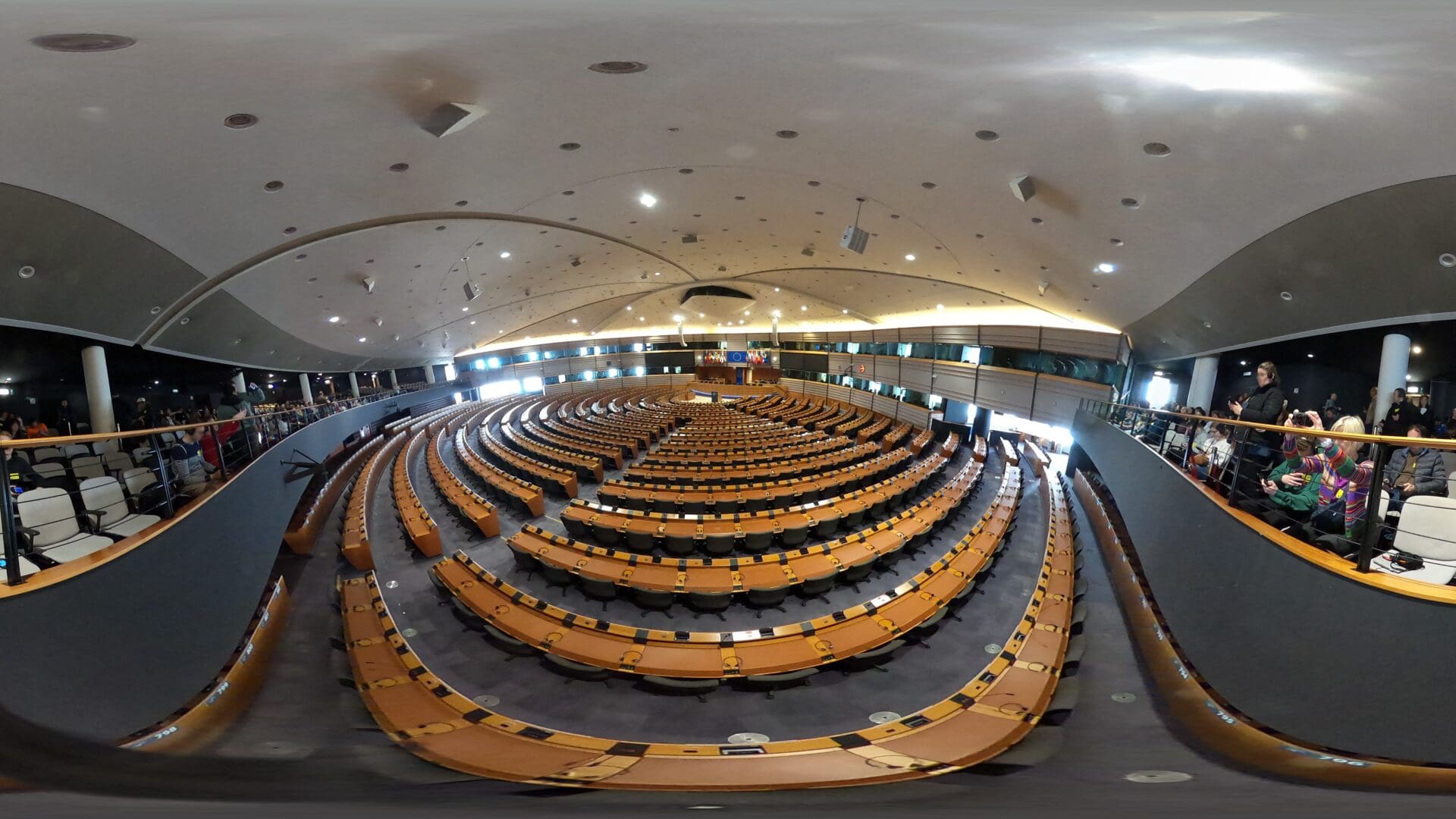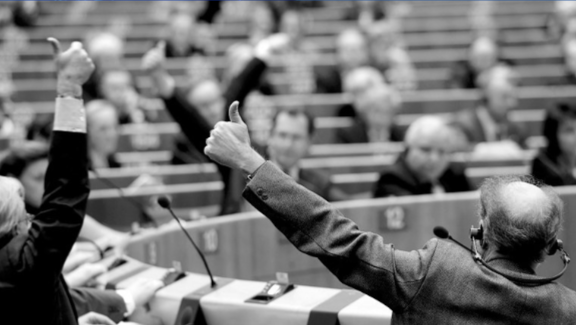The past few days have seen plenty of political turbulence our country. Suddenly, in addition to those reporters who regularly follow Hungarian public life, a large part of the EU mainstream media also started devoting a lot of coverage to what was going on in Budapest. The reason: the Committee on Budgetary Control operating under the auspices of the European Parliament visited Budapest.
Among the the delegation members were CSU politician and EPP MEP Monika Hohlmeiert, Dutch Labour politician Lara Wolters, German MEP Daniel Freund, Finnish EPP MEP Petri Sarvamaa, as well as momentum politician Katalin Cseh and DK politician Sándor Rónai. The delegation travelled to Budapest to find out about ongoing procedures against Hungary related to the protection of the EU budget and the rule of law conditionality mechanism.
In addition, the committee members wanted to examine the processes and control mechanisms set up to operate the Recovery and Resilience Facility (RRF), established to mitigate the effects of the COVID pandemic.
Although now that the delegation has left it can be stated with confidence that it arrived in Hungary with the verdict already in its pocket, the visit had enormous political significance. However, in order to get a transparent picture of the CONT Committee’s visit in the opaque maze of political intrigues, power relations and interests, it is necessary to take a few steps back and go back in time.
A Bunch of Procedures
A full and comprehensive inventory of the EU’s rule of law instruments would go beyond the scope of this article, but it is worth recalling the basis on which various proceedings are currently being conducted against Hungary in the European Union.
First of all, there is the procedure based on Article 7(1) of the Treaty on European Union. This is the one that was launched by the European Parliament in 2018 on the basis of a report by Green MEP Judith Sargentini. Then, four years later, two days after the Hungarian parliamentary elections, the European Commission decided to test a new instrument called the General System of Conditionality for the Protection of the EU Budget, adopted during the negotiations on the EU’s multiannual budget, commonly referred to as the rule of law conditionality order. There is a significant difference between the two procedures, since in the first case the Member State subject to the procedure does not have to fear significant retaliation, as the Council can only make recommendations in such proceedings, whereas in the case of the second, the Council can take measures at the initiative of the Commission, with real consequences.
The above-mentioned rule of law conditionality order may be applied where the Commission concludes that breaches of the principles of the rule of law have a direct impact on financial management of the Union budget or on the financial interests of the Union budget or on the financial interests of the Union, or where there is a serious risk of such a breach occurring. Under the Regulation, the Commission can raise concerns about a Member State and request that the Member State remedy the malpractice. In the event that the Commission and the Member State fail to reach an agreement, under the Conditionality Regulation, the Commission will propose appropriate and proportionate measures to the Council if the rule of law in a Member State is compromised to such an extent that the EU’s financial interests are threatened. The Council will then take a final decision on the proposed measures.
In 2022, a still ongoing negotiation process between the Hungarian government and the European Commission on cohesion funding from the common budget was launched under this regulation, in parallel with another negotiation between the Commission and Hungary surrounding the disbursement of €5.8 billion from the COVID Economic Recovery Fund (RRF) to Hungary. Discussions on RRF funds have been ongoing since 2021, but the Commission has decided to link this agreement informally to the conditionality process. Thus, despite the informal link,
the European Commission made the approval of Hungary’s recovery plan subject to ex ante political conditions
and linked the disbursement of cohesion funds due to Hungary to partially overlapping commitments.
After a lengthy negotiation process, despite a fruitful dialogue between the Hungarian government and the European Commission and the by the Hungarian government of most of the commitments it made, the College of Commissioners decided to recommend that the European Council only partially approve Hungary’s recovery plan at the end of 2022,
while part of the cohesion funding from the common budget was suspended. The European Parliament played a significant role in the outcome of the negotiations, as the institution tried to steer the European Commission in the direction it likes as much as possible, in order to reach a political decision on the rule of law issue in Hungary in accordance with the preferences of the parliamentary majority. This could also be clearly seen from the fact that Parliament always tried to exert political pressure on the European Commission at critical points in negotiations between the Hungarian government and the Commission.
In addition to informal discussions and political intrigue, the panel did its best to actively shape the issue, even adopting a resolution in which MEPs stated that the Commission and the Council should adopt the measures proposed under the rule of law mechanism to suspend funds, resisting Hungarian pressure, and also stated that the 17 measures negotiated by the Commission and the Hungarian government were not sufficient to address the systemic risk currently threatening the EU’s financial interests, even if fully implemented. The result of the pressure exerted by the European Parliament—which, of course, has never been publicly admitted—was that, in addition to the 17 public procurement and anti-corruption measures linked to the payment of cohesion funding from the common budget, the Commission decided to add ten more commitments to the list to be fulfilled by the Hungarian government in order to obtain money from the recovery fund.
It has therefore been a visible trend over the past year that the European Parliament always becomes active in relation to the rule of law conditionality procedure when there is some positive shift in negotiations between the Hungarian government and the European Commission. This is of great importance because we tend to see the European Commission as a kind of incomprehensible institution which, out of its own convictions, decides to use all possible means against Member States that hold positions different from those of the Commission. However, this is not exactly the case. The College of Commissioners can only move on a fixed track, because under European Union law, Parliament can not only exercise powers of scrutiny over the College of Commissioners, but also remove it, which means that
it can force the College to resign,
subject to compliance with the appropriate formalities, by justifying the motion of censure and by voting by a qualified majority on its Members. It can be clearly stated that over the past years, the current majority of the European Parliament has not shied away from using the tools provided to it by the treaties to assert its political will, and one of the results of its activism has been that the debate with the Commission on the rule of law in Hungary has shifted to a political-ideological level, with the negotiations between the parties continuing to drag on as a result.
An agreement Between the Hungarian Government and the Commission Is Close, but the European Parliament Would Block the Process
Last week’s visit of the CONT committee also fits the trend of shifting the rule of law and professional issues to the political plane, after the Hungarian government and the European Commission concluded a technical agreement on the Hungarian justice reform package at the end of April. Although a decision has been thus reached at the expert level, the commissioners and the commission president still have to give the nod to the agreement. Should the European Commission accept the Hungarian proposal, Hungary can access part of the withheld cohesion funds.
Members of the European Parliament, who are concerned about Hungary’s rule of law situation and are politically antagonistic to the Hungarian government, wanted to once again drive a wedge between the negotiating parties, and jeopardise their constructive cooperation during the CONT Committee visit.
The head of the delegation, Monika Hohlmeier, gave a long list of the rule of law problems in Hungary at a press conference after the three days spent in Hungary. Among the few positive findings of the committee, she mentioned that the integrity authority and judicial self-governance were given extra powers.
According to the CONT committee, there are no more positives.
Among other things, the delegation found that the Hungarian legislature operated in a ‘very hasty’ manner, resenting that the cabinet headed by Viktor Orbán had changed the budget several times this year. It was also emphasized that regional and local governments are not involved in development negotiations and that opposition-led municipalities are allegedly put at a disadvantage. The Committee also found that Hungarian authorities punish foreign companies in various ways and that Hungarian laws serve the purpose of driving multinational companies out of Hungary.
There is so much wrong in so many ways with the above allegations that it is hard to decide where to begin. On the one hand, they simplify Hungarian government decision-making to the extreme: they do not take into account any external factors which require the restructuring of public finance management as well as flexibility. On the other hand, rapid adaptation to changing circumstances and competent decision-making is clearly evaluated as a negative. Of course, amending a state’s budget, especially in times of a special legal order, when the hierarchy of legal sources changes compared to normal state operation, and the budget can also be amended at the level of a decree, must be done by the current cabinet with enhanced caution, keeping in mind the principle of legal certainty and predictability for market participants. However, when making decisions, efficiency and ability to act are a must.
In addition, the vague statement made by the members of the delegation lacked concrete evidence to underpin them. The Commission clearly did not strive strive for objectivity, basing their assertions on the opinions of organisations and persons who cannot be described as politically independent. A classic example of this is the case of German companies and companies that are allegedly systematically discriminated against in Hungarian tenders. In this regard, the members of the delegation also accuse the Hungarian government of discriminating against foreign companies without specifics and without evidence.
The ideological bias of of the European Parliament’s committee showed unequivocally already at the end of April, when business lawyer Arne Gobert, President of the German Business Club Hungary, wanted to speak at the CONT Committee meeting, but he was not allowed to express his views on the matter. Gobert said afterwards that he wanted to draw attention in his speech to the fact that the preliminary information sent by CONT abut the situation in Hungary was extremely biased. He wanted to say that every year, new German companies are investing in Hungary and are generally satisfied with the mutual cooperation. However, he did not get the opportunity to do so, being told that the members ‘already have sufficient information on the situation in Hungary.’ Obviously, the European Parliament’s delegation
takes into account only views that fit their narrative
not only about the media, the judiciary or local governments, but also about the economic situation, and the views of those who would like to offer different insights are swept aside.
This kind of one-sidedness was visible in the programme of the delegation as well. The members did not think it was important to get a nuanced picture of the judicial, economic and political situation in Hungary and made no effort to obtain balanced information. It based its assessment of the freedom of enterprise and the media in Hungary on the basis of the opinion of critical-of-the-government actors exclusively. During its stay, the committee met with pastor Gábor Iványi, various anti-government NGOs, Budapest Mayor Gergely Karácsony, left-wing and liberal journalists. From the other side of the political spectrum, they only spoken with Tibor Navracsics (by the way, the minister politely described the meeting as objective and aimed at mutual understanding, with his usual acumen and sense of diplomacy), and met with the members of the specialised committees of the Hungarian parliament.
As I highlighted at the beginning of my article, the political message sent by the delegation’s visit is significant, although not because of its composition. The importance of the visit lies in the fact that the timing of the investigation by the MEPs, the composition of the committee, as well as the programme and findings of the delegation together indicate that while the agreement between the Hungarian government and the European Commission is undoubtedly on the right track,
the European Parliament simply does not this agreement to be reached.
That is why, as they it happened last year, we can expect the EP to reactivate itself in the matter, and again put pressure on the European Commission, based on the one-sided and partial information obtained during the committee’s visit to Hungary.








